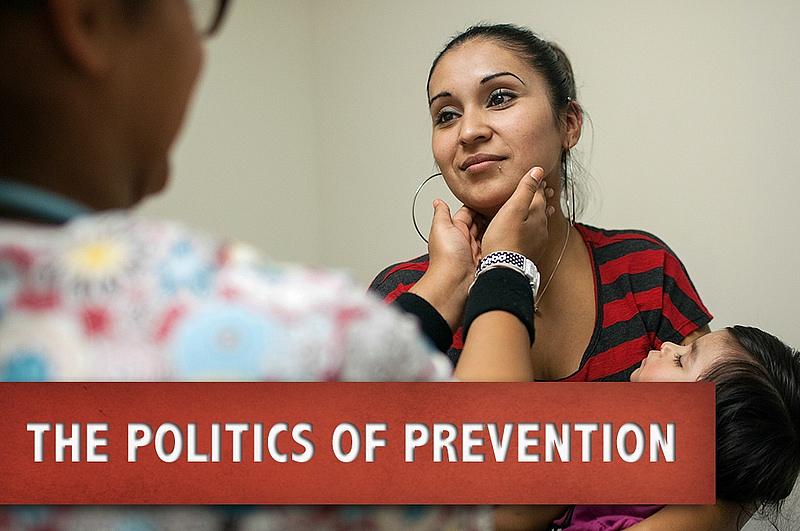State Senator Pushes for Further Expansion of Women's Health Services in Texas
As Texas continues to rebuild its network of family planning providers, state Sen. Jane Nelson says there’s now even greater capacity for the state to expand women’s health services.
This story is part of an ongoing series that 2013 Dennis A. Hunt Fund for Health Journalism Grantee and National Health Journalism Fellow Becca Aaronson will write for the Texas Tribune on women's health care in the state. For a complete look at Aaronson's extensive coverage, click here.

PHOTO CREDIT: Tamir Kalifa
As Texas continues to rebuild its network of family planning providers, state Sen. Jane Nelson says there’s now even greater capacity for the state to expand women’s health services.
“We can all agree there is more to be done,” Nelson, R-Flower Mound, wrote in a Dec. 5 letter to state Health Commissioner David Lakey. “By maximizing capacity, we can further ensure that Texas women can access these essential services.”
As chairwoman of the Senate Health and Human Services Committee, Nelson helped pass the largest financial package for women's health services in state history to restore access to family planning: Texas’ 2014-15 budget includes a $100 million expansion of a primary care program to provide services for an additional 170,000 women; $71 million to operate the Texas Women’s Health Program without Planned Parenthood clinics; and $43 million to replace family planning grants that the federal government awarded to another organization to distribute.
It came on the heels of a 2011 legislative cycle where Republican lawmakers voted for a budget that stripped two-thirds of family planning financing and removed “abortion affiliated providers” like Planned Parenthood from state health programs.
At the time, Nelson resisted the cuts, saying, “We need to help women who need our assistance with family planning or contraceptives to not have a baby when they can’t care for it.” In the end, she voted for the budget.
The move decimated the state’s network of family planning providers. Seventy-six family planning clinics closed as a result of the 2011 budget cuts, according to the Texas Policy Evaluation Project at the University of Texas at Austin, including 19 Planned Parenthood clinics that did not perform abortions.
Nelson’s staff said Tuesday that the Department of State Health Services has determined Texas could allot an additional $20 million in fiscal year 2015 to serve 71,000 more women after conducting additional analysis and consulting with stakeholders.
The Department of State Health Services finalized most of the provider contracts for the expanded primary health program in November and awarded $46 million for fiscal year 2014. The state plans to spend 60 percent of the primary care expansion dollars on family planning services and provide wraparound benefits, including prenatal and dental care for pregnant women, which are not covered by other public programs.
Despite the state’s progress, women’s health advocates believe Texas still has a long way to go in rebuilding the state’s family planning infrastructure.

